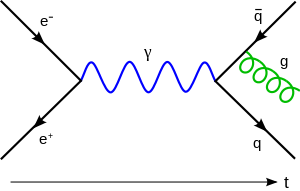 I’ve previously argued that it is unlikely that resource-constrained simulations can achieve adequate levels of fidelity to be sufficient for what we observe around us. This argument was a combination of computational irreducibility and assumptions about the complexity of evolutionary trajectories of living beings. There may also be an argument about the observed contingency of the evolutionary process that is an argument against any kind of “intelligent” organizing principle though not against simulation itself.
I’ve previously argued that it is unlikely that resource-constrained simulations can achieve adequate levels of fidelity to be sufficient for what we observe around us. This argument was a combination of computational irreducibility and assumptions about the complexity of evolutionary trajectories of living beings. There may also be an argument about the observed contingency of the evolutionary process that is an argument against any kind of “intelligent” organizing principle though not against simulation itself.
Leave it to physicists to envision a test of the Bostrom hypothesis that we are living in a computer simulation. Martin Savage and his colleagues look at Quantum Chromodynamic (QCD) theory and current simulation methods for QCD. They conclude that if we are, in fact, living in a simulation, then we might observe specific inconsistencies that arise from finite computing power for the universe as a whole. Those inconsistencies would be observed in looking at the distribution of cosmic ray energies, specifically. Note that if the distribution is not unusual the universe could either be a simulation (just a sophisticated one) or could be a truly physical one (free running and not on another entity’s computational framework). It is only if the distribution is unusual that it might be a simulation.